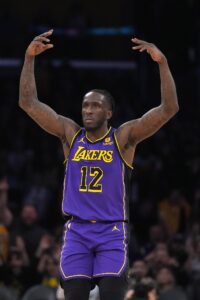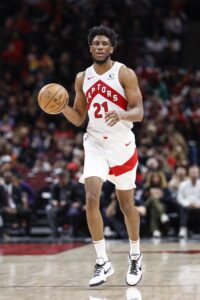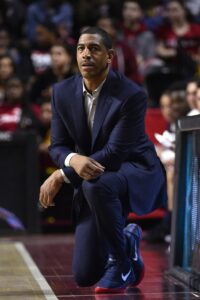The mid-level exception is the most common tool used by over-the-cap teams to sign free agents from other teams to contracts worth more than the veteran’s minimum. But that’s not the only exception those clubs have to squeeze an extra player onto the payroll. The bi-annual exception is a way for a team to sign a player who may command more than the minimum salary, but less than the mid-level.
As its name suggests, the bi-annual exception can only be used every other season. Even if a team uses only a portion of the exception, it’s off-limits during the following league year.
During the 2023/24 league year, two teams – the Heat and Sixers – were ineligible to use the bi-annual exception at all, since they used it in 2022/23.
 Three teams have used the BAE in ’23/24, with the Lakers signing Taurean Prince, the Cavaliers signing Ty Jerome, and the Raptors signing Jalen McDaniels. Those three clubs won’t have the exception at their disposal during the 2024/25 league year.
Three teams have used the BAE in ’23/24, with the Lakers signing Taurean Prince, the Cavaliers signing Ty Jerome, and the Raptors signing Jalen McDaniels. Those three clubs won’t have the exception at their disposal during the 2024/25 league year.
The bi-annual exception is available only to a limited number of clubs, even among those that didn’t use the exception during the previous season. Teams that create and use cap space forfeit their bi-annual exception. Additionally, teams lose access to the bi-annual exception when they operate over the first “tax apron,” a figure approximately $7MM above the tax line this season. So, only teams over the cap and under the first apron can use the BAE.
If a team uses all or part of the bi-annual exception, the first tax apron becomes the club’s hard cap for that season. Teams that sign a player using the BAE can later go under the cap, but can’t go over the first apron at any time during the season once the contract is signed.
[RELATED: NBA Teams With Hard Caps In 2023/24]
Although a team with a salary exceeding the first tax apron isn’t permitted to use the bi-annual exception, that team could gain access to the BAE by shedding salary. As long as the team’s salary would be below the first tax apron after completing the bi-annual signing – and remains below that threshold for the rest of the season – that club is permitted to use the BAE, no matter how high its salary might have been earlier in the league year.
Under the NBA’s current Collective Bargaining Agreement, the value of the bi-annual exception in future league years is tied to the value of the salary cap. The BAE comes in at 3.32% of that season’s cap and is rounded to the nearest thousand.
For instance, this season’s cap is $136,021,000; 3.32% of that amount is $4,515,897.20. Rounding to the nearest thousand gets us to $4,516,000, which is the maximum starting salary for a bi-annual signing in 2023/24. The starting salary for the BAE in 2024/25 currently projects to be worth $4,681,000, based on a $141MM cap projection.
A player who signs a contract using the bi-annual exception is eligible for a one- or two-year deal, with a 5% raise for the second season. For a player signed using the BAE in 2023/24, the maximum value of a two-year contract is $9,257,800.
Teams also have the option of splitting the bi-annual exception among multiple players, though that happens much less frequently than it does with the mid-level exception, since a split bi-annual deal may not even be worth more than a veteran’s minimum salary.
Beginning in 2024/25, teams will be permitted to use the bi-annual exception to acquire a player via trade or waiver claim, as long as his contracts fits into the exception in terms of both years and dollars. In other words, a player on a three-year contract or someone who is earning $5MM could not be acquired using the BAE. Only the player’s current-year salary must fit into the BAE.
The bi-annual exception begins to prorate downward on January 10 each year, decreasing in value by 1/174th each day until the end of the regular season. However, a team that uses its BAE between Jan. 10 and the trade deadline wouldn’t be subject to that proration and could use the full amount it has left on the exception.
Note: This is a Hoops Rumors Glossary entry. Our glossary posts will explain specific rules relating to trades, free agency, or other aspects of the NBA’s Collective Bargaining Agreement. Larry Coon’s Salary Cap FAQ was used in the creation of this post.
Earlier versions of this post were published in previous years by Luke Adams and Chuck Myron.
 “Thad is a highly respected veteran player who makes us a better team in our pursuit of winning an NBA Championship,” general manager James Jones said in a statement. “Thad is extremely intelligent and plays with a competitive intensity. His size and defensive abilities add versatility to our roster.”
“Thad is a highly respected veteran player who makes us a better team in our pursuit of winning an NBA Championship,” general manager James Jones said in a statement. “Thad is extremely intelligent and plays with a competitive intensity. His size and defensive abilities add versatility to our roster.” Three teams
Three teams  According to Charania (
According to Charania (